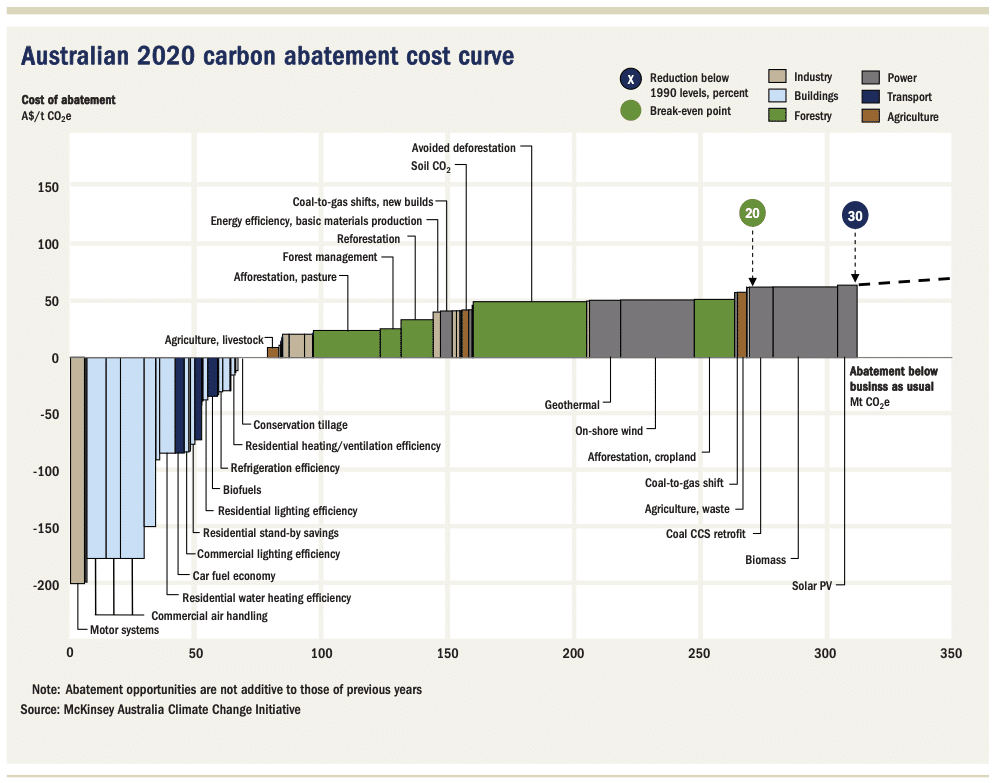Investor News
BHP joins Bill Gates in backing technology to kill off CO2
The below article from The Sydney Morning Herald highlights BHP's recent investment in Canada-based firm, Carbon Engineering.
BHP has tipped in $6 million to join superstar physicist David Keith, Microsoft co-founder Bill Gates and oil sands magnate Norman Murray Edwards in developing a technology that the Guardian claims could make them 'more money than they could ever dream of'.
The idea is simple: remove CO2 directly from the air.
It can then be used to make liquid fuels or stored underground.
The fuel angle is interesting because it has a net-zero impact on CO2 levels.
It's great that CE is working on an idea that can remove CO2 from the air. The potential is obvious.
And with big names like Gates and BHP investing, it's easy to see why most investors would see this technology as a sure thing.
But, Gates and BHP aren't always indicators of a sound investment.
Gates has been open in his plan to invest in 'fringe' ideas to see if they have potential. He can afford to throw cash at ideas that may fail.
BHP lost $2.4 billion on their failed HBI plant in WA.
The real challenge faced by Carbon Engineering's DAC technology is not necessarily technical, it's economic.
Individual DAC plants can be placed in any country and in multiple climates, and can be built to capture one million tons of CO2 per year. At this large scale, our technology will be able to achieve costs of $100-150 USD per ton of CO2 captured, purified, and compressed to 150 bar.
http://carbonengineering.com/about-dac/
CO2 only makes up 0.04% of our atmosphere. That's usually stated at 400 parts per million (ppm). This is a measurement of volume.
Given that around 37 billion tonnes of CO2 are emitted globally each year, can CE's DAC tech really 'kill off CO2' as the headline of the article suggests? Is DAC a cost-effective solution to removing CO2 at an abatement cost of USD100-150?
To answer this we need to understand the concept of marginal abatement cost (MAC) and marginal abatement cost curves (MACC).
The MAC is the incremental cost of implementing a particular solution when compared to business-as-usual.
The MACC is simply a chart of abatement solutions plotted from cheapest to most expensive and also shows the potential abatement or tonnes of CO2 avoided.

Simply, if our aim is to mitigate CO2 at the least cost, we need to start with the cheapest solutions and work our way up to the more expensive ones.
In the scheme of things, DAC is relatively expensive.
But, how does Coldry compare?
A few years ago, when Australia toyed with a carbon price of $23, we looked at how our own Coldry technology slotted into the MACC.
Coldry came in under $20 in the Australian market.
There is no silver bullet, and we need a broad approach to reducing emissions.
And while DAC could technically deliver large scale emissions capture, it's clear that Coldry as a pre-combustion abatement solution is cheaper per tonne of CO2 avoided than CE's DAC post-combustion solution.
Coldry also has the added benefit of maintaining reliable, affordable power generation, compared to deploying wind and solar with battery storage.
Right now, renewables remain expensive. Developing nations will continue to use coal. Those with brown coal will continue to use brown coal.
Coldry is a transitional solution designed to mitigate brown coal-fired power generation emissions as the world transitions to a low or zero-emission future.
Read more...
BHP joins Bill Gates in backing technology to kill off CO2

5 March 2019 | The Sydney Morning Herald | Darren Gray
BHP has invested $6 million in a company that has developed technology with the potential to remove carbon dioxide from the atmosphere on a large scale using huge fans.
BHP said Canadian company Carbon Engineering, which counts Bill Gates among its private investors, was leading the development of "direct air capture," a technology with the potential to deliver "large scale negative emissions".
Source: BHP joins Bill Gates in backing technology to kill off CO2